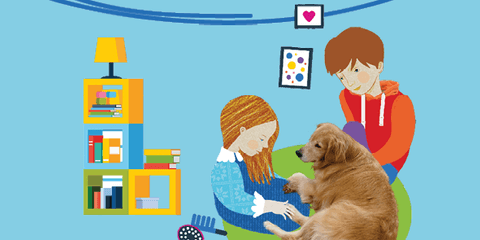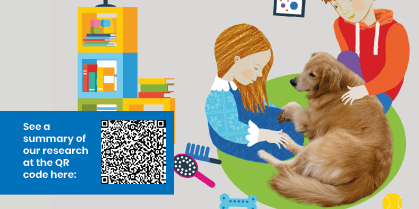Enrolling in school as a refugee living with a disability
Alesia and her mother Nataliia arrived in Poland from Ukraine with only basic belongings. For refugees, navigating the Polish education system can be challenging. Overcoming these challenges, Nataliia has enrolled Alesia, who is autistic, into a school where her educational needs are met with care and understanding.
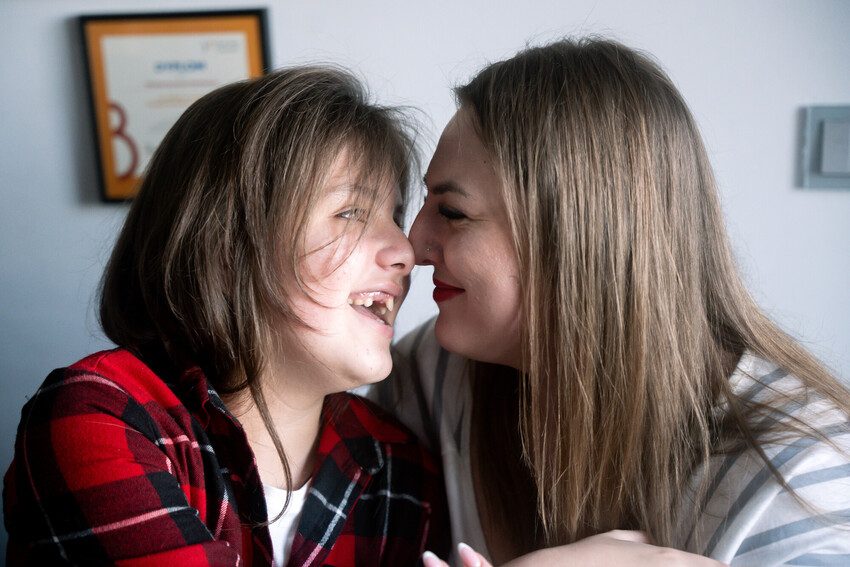
Born in a small town in Ukraine, Alesia’s family enjoyed a peaceful and fulfilling life. With her mother Nataliia by her side, Alesia grew up in a home where love and family support were central to her well-being. Nataliia describes the life they had before the war broke out as “normal” – a life filled with the everyday joys of family, work and school.
“The children went to kindergarten and school. We often visited my parents, who lived in a nearby village. It was a normal and good life. We enjoyed our life in Ukraine and had no plans to leave it,” recalls Nataliia.
Despite Alesia’s early diagnosis of autism, the family’s life was manageable. “The only challenge was that we needed to travel to Kyiv for Alesia’s regular treatment after she was diagnosed with autism,” Nataliia shares.
But the escalation of war in Ukraine changed their lives forever. Forced to flee and seek safety in Poland, Nataliia and her children set off. They fled with only the most essential belongings. Once in Poland, the challenges were immense.
“In Poland, I am a single refugee mother. It was hard. We could not find housing. Because of my daughter’s specialist needs, we could not stay for long in overcrowded accommodation centres,” she recalls.
But despite the difficulties, Alesia’s mother never gave up. She searched for solutions and organisations to make life in Poland better for her children and ensure that they could continue to learn and grow.
Navigating the Polish education system
One such organisation is the Patchwork Association, a partner organisation of Plan International. Patchwork provides vital support to refugee families of children with disabilities and specialist educational needs.
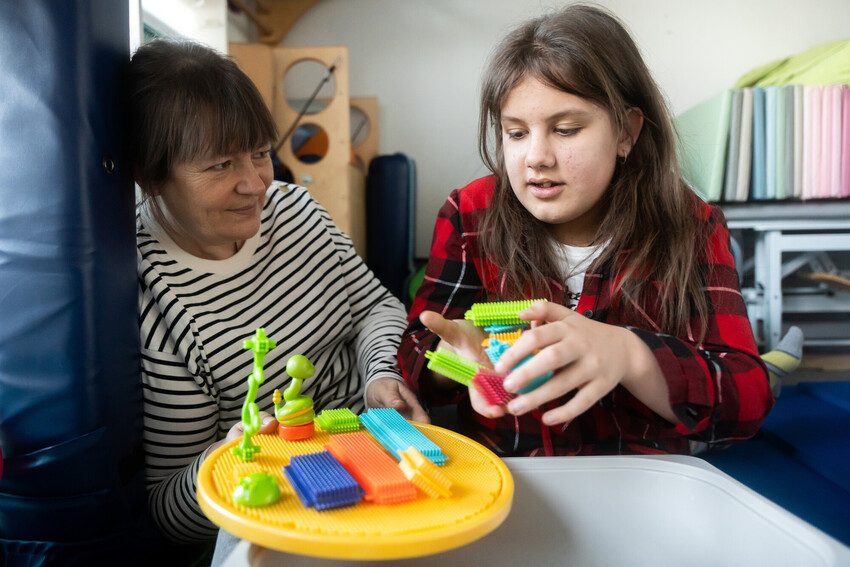
“Patchwork is an organisation run by women, migrants and refugees. The founders are 5 mothers of children with disabilities with migration experience and one specialist educational needs teacher. We invite our staff and people with disabilities to participate in our strategic planning so that we always see and understand their perspective,” explains Maria Buchanowska, Patchwork’s CEO.
Nataliia found Patchwork through social media. “Patchwork provided us with information and the support we needed for Alesia. Patchwork also helped us to confirm Alesia’s disability status in accordance with Polish law and to enrol her in school. Patchwork provided us with a family assistant,” she explains.
Alesia now attends a specialist school, where her educational needs are met with care and understanding. “We benefited from Patchwork’s moral support. It was not so scary anymore. We knew where to go for help and we learned how things work here in Poland,” says Nataliia.
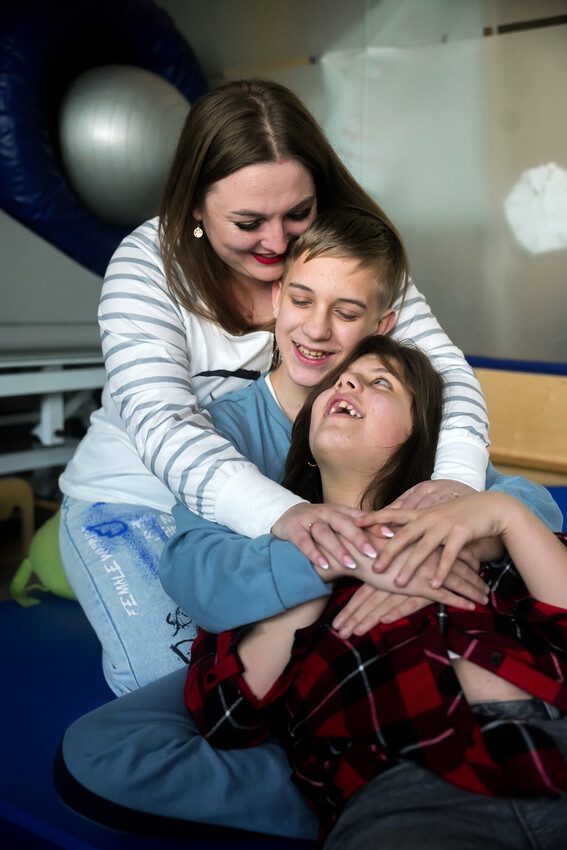
Maria Buchanowska explains that families like Alesia face many challenges in the Polish education system. “The enrolment capacity of specialist schools is usually not enough to meet the needs of the city’s residents. In Krakow [with a population of around 800,000] there are not enough places in specialist schools and the waiting list is long. Parents of children with disabilities cannot really enrol the child in the nearest school, as most families do,” she explains.
Patchwork helped parents to navigate this complex process and ensured that families were not left to fend for themselves. The process of obtaining a government certificate confirming a disability is complicated, and Patchwork supported refugee families through this challenging process.
The certificate is essential to gain access to schools or kindergartens adapted to the needs of children with disabilities. To obtain it, families must visit several doctors in a short period of time, but long waiting lists make this difficult. In addition, any medical documents obtained in Ukraine must be translated, often at a high cost. Patchwork helped to cover these translation costs, ensuring that families had the support they need during this process.
Encouraging schools to be more inclusive
Refugee families, especially those with children with disabilities, often struggle to navigate the medical and educational processes in Poland. As Maria explains, “A nationwide effort is needed to advocate for changes in the Polish education system. We need to encourage schools to become more inclusive for children.”
To address these challenges, Patchwork, in partnership with Plan International, organised a roundtable discussion in Krakow in October 2024. The event brought together key stakeholders, including representatives from local specialist schools, city authorities, local and international organisations, and refugee mothers of children with disabilities, and fostered a constructive dialogue on how to improve the system for all children.
Patchwork’s support goes beyond education. It is a holistic approach that addresses the social, emotional and practical needs of refugee families. For Alesia, Patchwork not only provided access to a specialist school, but also helped to secure a psychologist and speech therapist to further support her development.
Patchwork also provided psychosocial support to Nataliia, helping her to cope with the challenges of living as a single refugee mother. Being able to share her problems with Patchwork’s family assistants, Nataliia has found a strong support system, helping her regain her confidence.
“What we all need is peace, a roof over our heads and safety for our children.”
Nataliia
Continued resilience as the war enters its fourth year
Despite the difficult experiences Alesia has faced – fleeing Ukraine, enduring the hardships of displacement and adjusting to a new country – she has shown remarkable resilience. Her mother, although burdened by uncertainty and personal health issues, remains steadfast in her commitment to Alesia’s wellbeing.
Although the family still face much uncertainty as they navigate life in Poland, Nataliia now has the support she needs when it comes to difficult issues about housing, her family’s future and her own health. Nataliia’s words reflect her unwavering determination: “What we all need is peace, a roof over our heads and safety for our children.”
As the full-scale war in Ukraine enters its fourth year this February, Nataliia faces the harsh reality of not knowing if she will ever be able to return safely to Ukraine. For women like her, the war has had a deeply gendered impact, placing an overwhelming burden on them to maintain the unity and stability of their families. Their resilience and strength are often overlooked, but they carry the weight of ensuring not only their own survival, but also the well-being of their children.
Categories: Education, Emergencies

